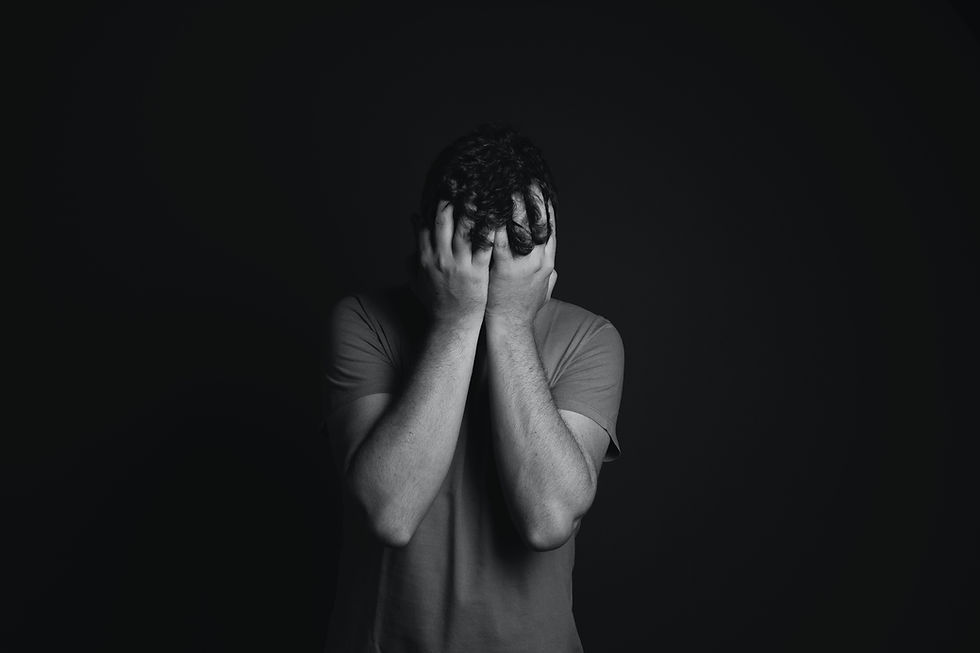Why Is Social Media Responsible For The Titanic Spike In Mental Health Challenges?
- Emily Halsall

- Oct 10, 2020
- 3 min read
Updated: Aug 19, 2021
Today we are hearing more about models, their mental health and the pressure they are under to look a certain way – and how they cope with this. Just last year, two fashion giants LVMH and Kering (who own brands like Christian Dior and Gucci) announced bold steps to tackle underweight models, as a response to claims that the fashion industry was encouraging eating disorders. The move came shortly after France introduced legislation banning ultra-thin models too.
Once taboo, mental health has in recent years become a more acceptable and even welcome topic of conversation in public forums. Millennials are seeking out therapy at higher rates than past generations, and the general consensus is that we live in extremely anxious times, with concerns about global warming, mass shootings, political turmoil, financial insecurity, and humanitarian crises contributing to our daily stress.
And, of course, there’s social media, which is well known for affecting one’s self esteem and sense of stability. Erin Vogel, a postdoctoral fellow in psychiatry at UCSF, ran a 2014 study that examined how aspirational posts affect social media users. Subjects were either shown the profiles of fictional people who posted life highlights and received a lot of likes and comments, or posts that were more mundane.
The results wouldn’t surprise anyone: Those who saw the highlight-heavy profiles reported feeling worse about themselves, while the other group felt less of a change. While it’s tempting to think we should be able to correct for this and carry on using social media, knowledge, and feelings don’t always move in unison.
It’s Not Just Influencer Followers That Suffer From Mental Health Issues
Swimsuit model Nina Agdal has opened up about her anxiety, writing that it will spike during fashion week. Olivia Culpo, an influencer and former Miss Universe, wrote about her experience with depression, explaining that even during that time she was “still taking photos on social media and pretending everything was great.”
Garance Doré, a longtime style blogger, rang in 2019 with a long post about finding her way through a difficult few years, after getting caught up “in this mirage of the fashion girl.” The disconnect between real life and life as portrayed on Instagram is not lost on them.
It’s easy to feel unsympathetic toward influencers, the group of Instagram users who most obviously enact the digital depiction of leisure, luxury, fitness, and travel that make onlookers feel inferior. But being in the business of constructing an idealised digital identity effectively turning your life into a product can take a serious toll on a person’s mental health, too.
But on Instagram, nothing is ever simple. Encountering such trauma and mental health challenges comes upon using a technology that has significant potential to make a person feel terrible about themself. Instagram can leave you with a stomach full of envy and self-doubt, and influencers’ admissions of personal struggle may or may not offset those effects.
How We Can Make A Change
Larissa May, a former fashion influencer who now runs #HalftheStory, a nonprofit dedicated to building a conversation around social media and mental health, says that creating content for her blog took over her life. She was constantly buying and returning clothes to photograph herself in; when she went out to eat, she went to the most photogenic restaurant she could find. Every aspect of her life had a commercial purpose.
“It has a profound effect on your mental wellbeing. There’s a lot of isolation and loneliness,” May says of the influencer business.
With #HalftheStory, the goal is to get more major influencers involved in talking about the personal struggles that don’t come across on their Instagram grids. It is believed that there is an opportunity for influencers to partner with mental health nonprofits and even bring that work into other brand deals, by donating a percentage of sales to a nonprofit organisation.
When you have a large social following you do have a social responsibility to figure out a way to use your platform for good, and sometimes the way to get there is by acknowledging the bad.



Comments